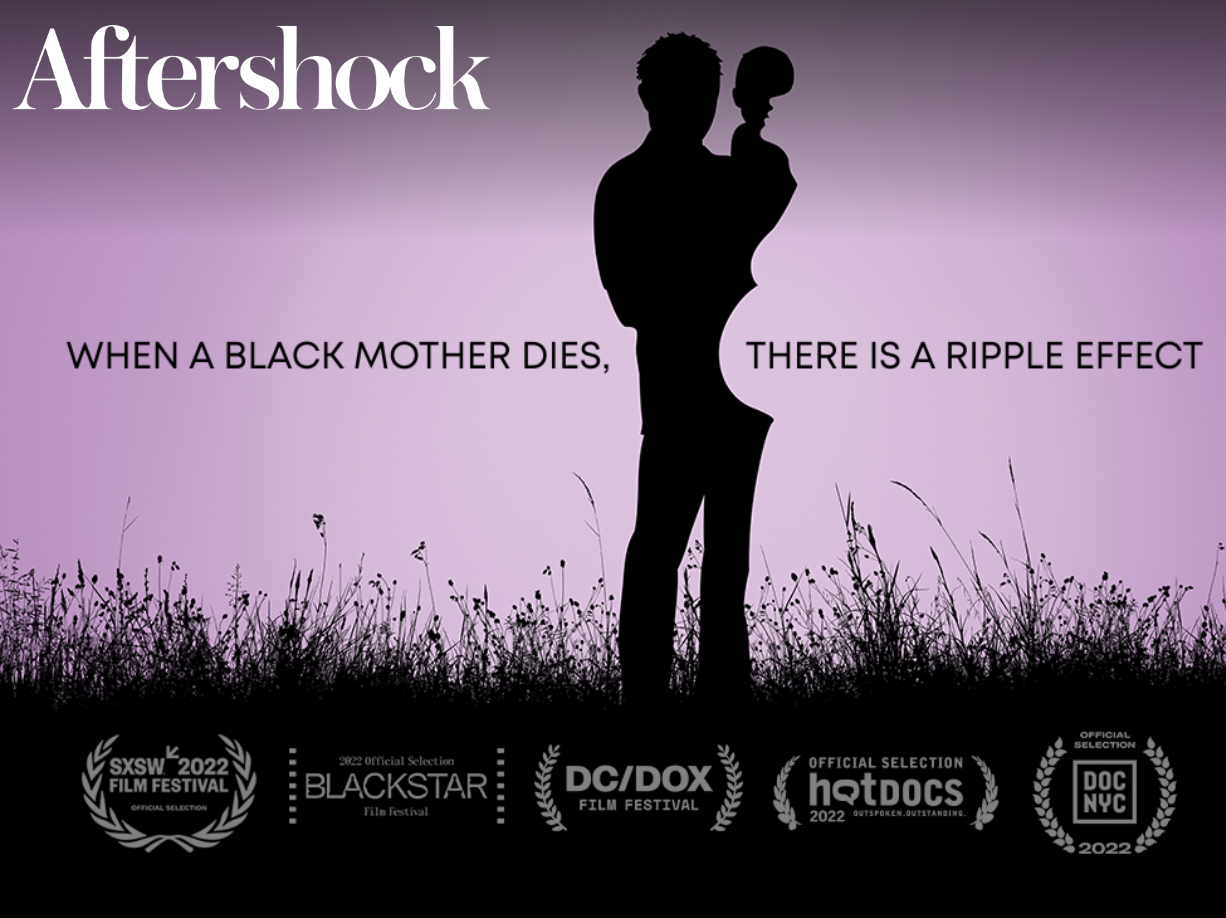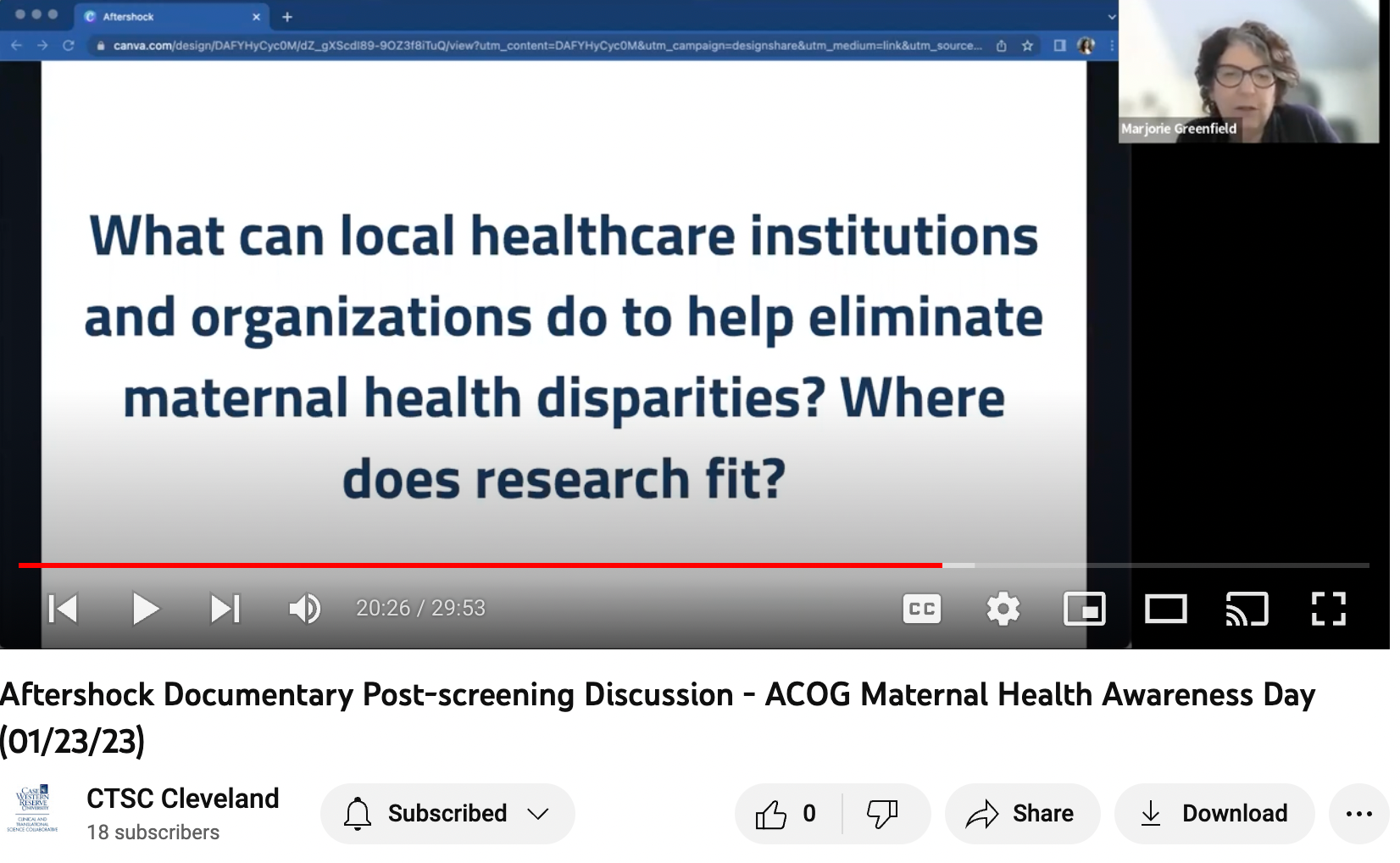Women Can’t Make History If They’re Not Surviving Childbirth
This article is a part of our CTSC Event Recap series.
Women’s History Month is an opportune time to reflect on how far women have come and how far society needs to go to create and cultivate an environment where all women can thrive, and experience as well as receive equity in all aspects of their lives. However, women can’t make history if they’re not surviving childbirth or suffering from life-altering or -ending consequences due to inadequate care, provider bias, and systemic -isms, like racism.
On January 23, 2023, the CTSC hosted a screening of Aftershock, a documentary that follows two families who galvanize activists, birth-workers, and physicians after the preventable deaths of their loved ones due to childbirth complications. The American College of Obstetrics and Gynecology coined this date Maternal Health Awareness Day. The 2023 Maternal Health Awareness Day theme was, “Know Why.”
What is the CTSC's "why"? Our goal, in alignment with the National Center for Advancing Translational Sciences (NCATS), is to help provide more treatments to all people more quickly. The CTSC supports researchers who are developing and testing interventions that will help decrease the incidence of maternal and infant morbidity and mortality.
“Hearing personal stories is always very different than looking at numbers [...] and looking at the communication failures that were underneath a lot of the problems, a lot of these stats,” Marjorie Greenfield, Vice Dean of Faculty and Professor, Department of Reproductive Biology, Case Western Reserve University, School of Medicine shared. Dr. Greenfield said they have quality ground rounds and 15-minutes of that time is dedicated toward exploring topics including racism.
The Ohio House of Representatives almost unanimously voted to pass a bill to expand access to doula services that would allow Medicaid coverage for doula services. The proposed law, HB142, currently sits in the Senate committee. Interventions, like doulas, have been proven to improve outcomes for Black and Brown mothers and babies, where, according to the Ohio Department of Health, Black babies are 2.7 times more likely to die before their first birthday than white infants.
“‘Is she on drugs?’ That’s what they heard of who knows how many other questions they asked her. They felt attacked from the moment they interacted with [...] EMT people, before they entered the hospital. They were on edge before they left the comfort of their own home,” said Amy Burkett, MD. She added that, “We have these really innovative ideas, but we haven’t changed the way we pay for obstetric care to make it feasible for hospital systems and practices [...] to meet revenue [demands].” Dr. Burkett is the ACOG District 5 Legislative Chair (Ohio, Indiana, Michigan, Kentucky, and Ontario).
On this same day, Governor Mike DeWine announced that the Ohio Department of Medicaid launched a “community-wide, statewide program aimed at improving the health and well-being of moms, infants, and families,” titled Comprehensive Maternal Care. Practices that participate in the program will be reimbursed by Ohio Medicaid with a payment structure that rewards providers who address patient and family needs (i.e., social determinants or drivers of health) across the entire childbearing cycle (i.e., prenatal, birth, postnatal).
If you missed this screening, join our hospital affiliate, MetroHealth, for a screening and discussion that they are sponsoring with Birthing Beautiful Communities, Village of Healing, Saint Luke’s Foundation, and Pregnant with Possibilities Resource Center, on Monday, March 20 from 4:30PM-9PM at the Huntington Convention Center of Cleveland. Registration is required here.
Watch the post screening discussion of Aftershock on our YouTube channel.



